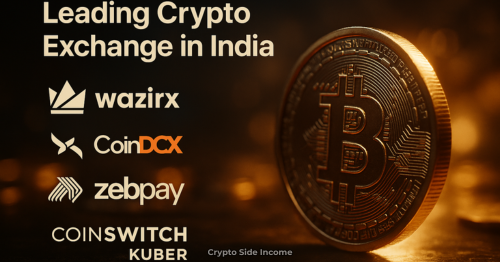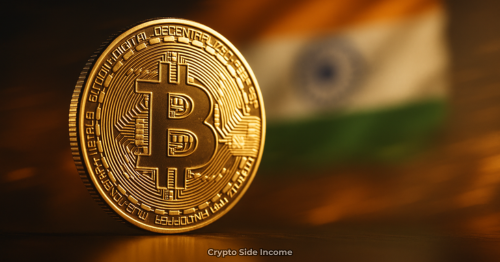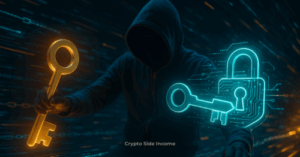Top-Rated Crypto Exchange in India: What You Must Know. With India emerging as a global fintech hub, understanding how crypto exchanges function here has never been more crucial. Whether you’re a beginner or seasoned trader, navigating the landscape of a crypto exchange in India demands insights into compliance, security, and market offerings.
The rising interest in digital assets has attracted millions of Indian investors toward platforms that allow seamless and legal transactions. As digital financial ecosystems continue evolving, the importance of trustworthy exchanges becomes paramount.
What Is a Crypto Exchange?
A cryptocurrency exchange is a digital platform that facilitates the buying, selling, and trading of cryptocurrencies like Bitcoin, Ethereum, and other digital assets. Users can either swap one coin for another (e.g., BTC to ETH) or convert their INR to digital currencies and vice versa.
A crypto exchange in India acts as the gateway for Indian investors to access the global digital asset market while complying with domestic financial regulations. These platforms provide liquidity, a user-friendly interface, trading tools, mobile apps, and strong backend security.
Why the Indian Crypto Market Matters
India currently ranks among the top countries globally for crypto adoption. Despite regulatory roadblocks and tax policies, Indian users are steadily adopting cryptocurrencies for investment, remittance, and even savings diversification. This growing demand has fueled the rapid evolution of the crypto exchange in India ecosystem.
According to a Chainalysis report, India leads in grassroots crypto adoption. This makes reliable, regulated, and user-friendly exchanges absolutely essential to the digital economy. Increasing mobile penetration, low-cost internet, and tech-savvy youth are strong tailwinds supporting this trend.
Even traditional investors are slowly entering this market through regulated platforms that simplify onboarding and compliance.
Leading Crypto Exchange in India: Founders & Launch Years
Here is a snapshot of India’s top crypto exchanges and the minds behind them:

WazirX
- Founded: 2018
- Founders: Nischal Shetty, Sameer Mhatre, Siddharth Menon
- Overview: Known for user-friendly UX and P2P trading
- Visit Website: WazirX
CoinDCX
- Founded: 2018
- Founders: Sumit Gupta, Neeraj Khandelwal
- Overview: Offers staking, margin trading, and supports over 200 cryptos
- Visit Website: CoinDCX
ZebPay
- Founded: 2014
- Founders: Sandeep Goenka, Mahin Gupta, Saurabh Agrawal
- Overview: One of the oldest crypto exchanges in India, re-entered Indian market in 2020 with tighter compliance
- Visit Website: ZebPay
CoinSwitch Kuber
- Founded: 2017
- Founder: Ashish Singhal
- Overview: Mobile-first platform, ideal for beginners, backed by Sequoia Capital and a16z
- Visit Website: CoinSwitch Kuber
These exchanges are not only popular but also play a critical role in policy advocacy and mass adoption of crypto in India.
Key Features of a Good Crypto Exchange in India
When selecting a crypto exchange in India, consider the following:
Regulatory Compliance
Ensure the exchange complies with Indian KYC/AML laws and tax regulations. CoinDCX and WazirX have taken steps to align with the evolving legal framework.
Liquidity & Coin Selection
A well-rounded exchange supports high liquidity and a variety of coins. Look for platforms offering at least the top 50 cryptocurrencies by market cap.
Low Fees
Transaction, withdrawal, and deposit fees vary. Compare pricing before choosing a platform. Some exchanges also offer trading fee discounts for higher-volume users or those using native tokens.
Security Infrastructure
Top platforms implement multi-signature wallets, cold storage, and two-factor authentication to prevent hacks. Also consider whether the exchange offers insurance or compensatory policies in case of a breach.
Customer Support
Round-the-clock assistance and a transparent help center are must-haves for both new and seasoned investors. Platforms with active communities, tutorials, and multilingual support provide extra convenience.
Regulations Impacting Crypto Exchange in India
The legal status of cryptocurrency in India remains gray but improving. As of now:
- The RBI has not banned crypto but advises caution.
- Income from crypto is taxed at a flat 30% rate, with 1% TDS on each transaction.
- No exchange is currently licensed by SEBI, but discussions are underway to bring crypto under the Financial Sector Development Council (FSDC).
These dynamics make compliance and transparency critical for any crypto exchange in India to survive and thrive.
With a growing consensus around recognizing digital assets as a legitimate financial product, the future is likely to include more defined frameworks, paving the way for investor protection and institutional adoption.
How to Get Started with a Crypto Exchange in India
If you’re new to cryptocurrency, here is a simplified step-by-step process to get started with a crypto exchange in India:
Step 1: Choose the Right Exchange
Compare exchanges based on fees, available coins, customer reviews, and ease of use. For beginners, platforms like WazirX and CoinDCX offer streamlined onboarding.
Step 2: Complete KYC Verification
You’ll need to provide identity proof (like Aadhaar or PAN), address proof, and a selfie. Most top platforms verify within minutes to a few hours.
Step 3: Deposit Funds
Use UPI, net banking, or IMPS to deposit INR. Once funds reflect in your account, you’re ready to buy your first crypto.
Step 4: Buy Crypto
Start with well-known assets like Bitcoin (BTC), Ethereum (ETH), or stablecoins like USDT. Diversify slowly as you understand the market.
Step 5: Secure Your Assets
Avoid storing large amounts on exchange wallets. Transfer them to private wallets for better control and safety.
Advanced traders can also explore features like futures, margin, and staking, depending on platform offerings and risk appetite.
Future Outlook of Crypto Exchange in India
Despite regulatory uncertainty, the future of crypto exchange in India looks promising. The 2025 Union Budget hinted at developing a framework for digital asset regulation. Startups are building blockchain infrastructure, exchanges are adopting global compliance standards, and awareness among youth is accelerating.
More institutional investors are entering the space, and fintech adoption is growing rapidly. As India continues to lead the world in Web3 talent, the crypto exchange in India landscape is likely to see more innovation, investment, and regulation in the coming years.
Decentralized finance (DeFi), NFTs, and real-world asset tokenization are also emerging use cases that may soon be integrated into Indian exchanges, making them holistic financial ecosystems.
Final Thoughts
Choosing the right crypto exchange in India is crucial for your trading journey. With evolving laws and a growing market, investors need platforms that are secure, compliant, and future-ready. Do your research, stay updated on legal changes, and always prioritize security when dealing with digital assets.
Frequently Asked Questions
Is cryptocurrency legal in India?
Yes, cryptocurrency is legal to own and trade in India. However, it is not considered legal tender. The government has imposed a 30% tax on crypto income and 1% TDS on each transaction. While crypto is not banned, regulations are still evolving. Investors must use platforms that comply with Indian KYC and tax norms.
Which is the best crypto exchange in India for beginners?
For beginners, WazirX, CoinDCX, and CoinSwitch Kuber are highly recommended. These exchanges offer easy sign-up, low fees, INR support, mobile apps, and simplified UIs ideal for first-time users. They also provide educational content to help users make informed decisions.
How do I deposit INR into a crypto exchange in India?
You can deposit INR using UPI, IMPS, or net banking on most Indian crypto exchanges. After completing your KYC, go to your account’s wallet section, select “Deposit INR,” choose your payment method, and follow the on-screen instructions. Deposits are usually reflected instantly or within minutes.

I work as a content writer in the blockchain and cryptocurrency domain. I have a keen interest in exploring the world of digital assets, Web3, and emerging crypto technologies. My goal is to provide readers with easy-to-understand, engaging, and trustworthy insights, helping them stay informed and confident in the rapidly evolving world of crypto and blockchain.










